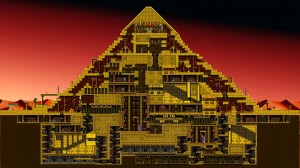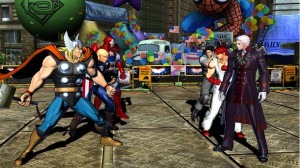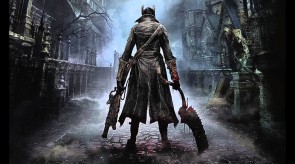The letters DLC should be familiar to most/all gamers at this point as Downloadable Content. Gaming has evolved to a state of fluidity, meaning retail games as they are packaged are no longer the final, unchangeable product. Games can be patched, expanded and completely overhauled in the world of next gen. gaming.
This is less than a revelation to PC gamers who have been modding and patching games for years, due to the platform’s versatility. Modding communities and add-on packs have meant that for the past decade PC games have enjoyed expansions and facelifts while their console equivalents usually stagnated.
 2005. Enter the seventh generation. Xbox 360, PS3 and Wii, with their built in hard-drives and downloadable content have revolutionised the gaming industry. Finished your new favourite game? Wait a few months for an add-on and a few extra achievements/trophies. Costumes, levels, characters and weapons, all available to buy to enhance your gaming experience. It seemed too good to be true. It was.
2005. Enter the seventh generation. Xbox 360, PS3 and Wii, with their built in hard-drives and downloadable content have revolutionised the gaming industry. Finished your new favourite game? Wait a few months for an add-on and a few extra achievements/trophies. Costumes, levels, characters and weapons, all available to buy to enhance your gaming experience. It seemed too good to be true. It was.
Welcome to 2011. Economic crisis, political unrest and poor development practice are the order of the day. The original concept of DLC has been corrupted and turned on the gamer by dishonest publishers and developers. The spread of console gaming beyond “hardcore” gamers has created bigger markets and apparently more greed, with developers using downloads as a means of making more money, rather than improving the end user’s experience of the game. While it is perfectly reasonable and legitimate for games companies to charge for their content it is not acceptable for them to withhold content from the “finished” game.
 In recent months the trend of withheld content has become more and more apparent and worrisome. One of the most publicised examples of the phenomenon has been Castlevania Harmony of Despair on the Xbox 360. The game itself is a downloadable game, having never been packaged for retail. The rumour mill started churning very shortly after its release, when details and pictures of an add-on pack were leaked. The DLC would contain and additional level and two extra characters for the release and weighed in at a puny 4mb. The size of the download led to much speculation that the content had already been shipped with the full game and that the add-on was merely a disguised unlock key for content already on one’s harddrive. While this may or may not be the case, the fact that the content was available so quickly after the full title’s release suggests that it may have been ready to ship with the game, but Konami withheld it in order to boost post-sale add-on revenue.
In recent months the trend of withheld content has become more and more apparent and worrisome. One of the most publicised examples of the phenomenon has been Castlevania Harmony of Despair on the Xbox 360. The game itself is a downloadable game, having never been packaged for retail. The rumour mill started churning very shortly after its release, when details and pictures of an add-on pack were leaked. The DLC would contain and additional level and two extra characters for the release and weighed in at a puny 4mb. The size of the download led to much speculation that the content had already been shipped with the full game and that the add-on was merely a disguised unlock key for content already on one’s harddrive. While this may or may not be the case, the fact that the content was available so quickly after the full title’s release suggests that it may have been ready to ship with the game, but Konami withheld it in order to boost post-sale add-on revenue.
 This same issue is now arising with the release of Marvel vs. Capcom 3. The game, which is available for most regions this week, already has a good deal of content lined-up to purchase from the various online marketplaces. Extra characters and costumes have already been announced and screenshots have been made available, demonstrating that, while this content was apparently ready to ship with the release, it has been withheld. The collector’s edition of the retail title will be accompanied by a redeem code for the two extra characters (thus boosting in-store figures) while they will then be made available to purchase and download for a particular fee online.
This same issue is now arising with the release of Marvel vs. Capcom 3. The game, which is available for most regions this week, already has a good deal of content lined-up to purchase from the various online marketplaces. Extra characters and costumes have already been announced and screenshots have been made available, demonstrating that, while this content was apparently ready to ship with the release, it has been withheld. The collector’s edition of the retail title will be accompanied by a redeem code for the two extra characters (thus boosting in-store figures) while they will then be made available to purchase and download for a particular fee online.
This tendency, if it continues, will alienate gamers to the idea of DLC, with it becoming synonymous for rushed, incomplete and underdeveloped games. It is a dishonest abuse of a system conceived to improve and expand upon games, instead being used to generate additional income, the benefit of which, the gamer will probably never see. So this is Pop Culture Monster’s plea to the gaming industry: Show some integrity and clamp down on the withholding of content. With gaming being one of the more difficult industries to pirate (to the level that movies and music are) we beg in earnest that you do right by us. You keep churning them out and we’ll keep buying them, but let’s keep our relationship honest and fair. We look forward to many more decades of amazing and unending games.
Love,
Pop Culture Monster


